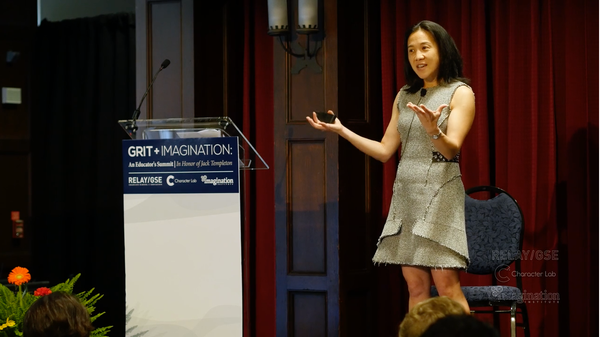This article was published in Scientific American’s former blog network and reflects the views of the author, not necessarily those of Scientific American
Though grit and imagination are two important character traits for success, we often treat them as opposed to each other. However, many of the highest achievers find ways to incorporate both dreaming and doing into their work. Educators that combine the two can be an inspiration for students, setting them up for success in the classroom and beyond.
To help teachers receive the tools they need, the Relay Graduate School of Education (Relay), Imagination Institute, and Character Lab teamed up last summer to host the three-day Grit+Imagination: An Educator Summit in honor of Jack Templeton. Over 150 educators and leading researchers from around the world gathered in Philadelphia to explore the juxtaposition of grit, defined as passion and perseverance for long-term goals, and imagination, an essential component of creativity, curiosity, and innovation. While imagination offers the foresight to see beyond “what is” to “what could be,” grit is what turns that vision into a reality.
.png?w=650)
Credit: Character Lab
On supporting science journalism
If you're enjoying this article, consider supporting our award-winning journalism by subscribing. By purchasing a subscription you are helping to ensure the future of impactful stories about the discoveries and ideas shaping our world today.
The Summit offered a space for educators and researchers to learn from each other’s expertise. Leading scholars in both grit and imagination, including Angela Duckworth, Martin Seligman, Scott Barry Kaufman, Susan Engel, K. Anders Ericsson, Robert Sternberg, Bob Mankoff, Jane Golden, Mary Helen Immordino-Yang, and Jane Gillham, suggested ways to apply cutting edge research to the classroom to cultivate grit and imagination in students. Educators then had the opportunity to develop classroom practices that can ignite character-based growth.
Researchers also contributed to a series of videos and a Big Think piece further exploring their ideas. These videos hopefully serve as a helpful resource for educators interested in character-based instruction. All videos, think pieces, and links can be found here.
